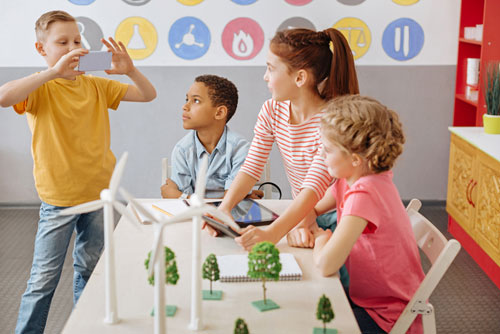Reporting on progress
Purpose of reporting
 The purpose of reporting is to support and improve learning. Reporting may involve your child and can provide:
The purpose of reporting is to support and improve learning. Reporting may involve your child and can provide:
- information about your child's strengths and next steps in their learning
- an opportunity to talk to your child about their progress
- an opportunity for you to give your views on your child's learning
- an opportunity for your child to give their views on their progress
- an opportunity to discuss with your child and the school how you can support their next steps in learning.
Range of reporting approaches
Reporting about your child's progress will be ongoing through the year and will involve you and your child. Regular reporting will help you and your child to understand their learning and allow staff to plan future learning.
There are a number of ways your school may tell you about how your child is progressing:
- through the work that your child does at home
- parents' nights when you have the opportunity to speak to your child's teacher(s)
- the yearly report, which details progress made, strengths and next steps
- open days
- pupil-led parent/teacher meetings
- learning logs and E-portfolios.
Influencing future learning
As well as reporting on progress made in the curriculum, reporting will also include information on the personal achievements that your child has gained inside and outside school.
Reporting will:
- describe your child's strengths and areas for development
- describe progress in achievement across the eight curriculum areas
- describe progress in achievement within the curriculum levels in a curriculum area (for example Literacy) or in part of a curriculum area (for example reading, writing)
- describe achievement in different contexts and settings
- describe next steps in learning and how you can help
- describe any additional support that your child may need and how you can help.
